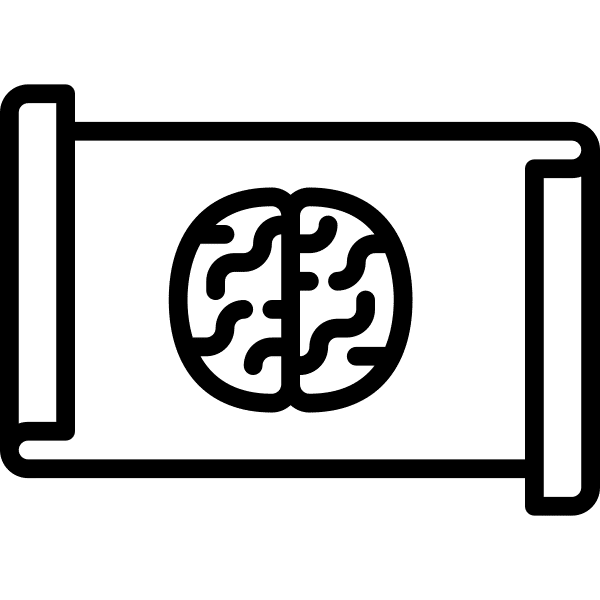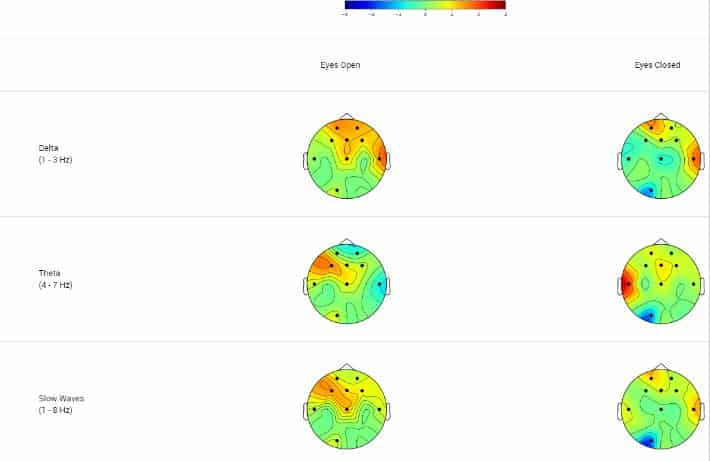Neurodegenerative Diseases
Table of Contents
What are Neurodegenerative Diseases?
Neurodegenerative disorders are chronic conditions that damage parts of your nervous system over time, causing dysfunction, especially in your brain. Dysfunction in the brain can cause physical and mental symptoms such as difficulty thinking, moving, speaking, and more. These conditions are permanent, but the effects of them can be significantly reduced due to advances in technology and neuroscience. Currently, the main goal of medical care is to treat the symptoms and slow the progression of these conditions when possible. Help for neurodegenerative diseases can help to preserve quality of life.
Types of this condition:
It’s important to remember that there are many areas of overlap between the various degenerative brain diseases. Many of them share symptoms and have causes that work similarly. However, they all involve cellular and electrical neural pathway dysfunction.
Dr. Trish Leigh has gained top-tier skills in using neuroscience technology to assess and treat these types of brain dysfunctions.
In doing so, Dr. Leigh can improve clients’ cellular and brain performance function. In doing so clients see a reduction in symptoms and increased quality of life. Neurological support for neurodegenerative diseases can help improve quality of life.
Some of the main types of degenerative brain diseases include (but aren’t limited to):
- Dementia-type diseases: These cause progressive damage to various areas of your brain, causing neurons in several areas of your brain, to die. That can then cause a wide range of symptoms depending on the brain areas.
- Demyelinating diseases: These involve myelin damage or loss, which affects the sending and relaying of nerve signals. Examples include multiple sclerosis (MS) and neuromyelitis optica spectrum disorder (NMOSD). affected. These include many conditions, such as Alzheimer’s disease, frontotemporal dementia, chronic traumatic encephalopathy (CTE), Lewy body dementia, and limbic predominant age-related TDP-43 encephalopathy (LATE).
- Parkinsonism-type diseases: These happen because of damage to specific neurons in your brain that help manage coordination and precise control of muscle movements. This includes Parkinson’s disease and other forms of Parkinsonism (the general term for conditions that look similar to Parkinson’s).
- Motor neuron diseases: These happen when neurons that control movement die off. Examples include amyotrophic lateral sclerosis (ALS, often known as “Lou Gehrig’s disease”) and progressive supranuclear palsy (PSP).

Symptoms and Causes
Parkinsonism-Type Disease
These often involve slowed movements, shaking and tremors, balance problems, shuffling steps, and hunched posture.
Dementia-Type Disease
These cause confusion, memory loss, trouble thinking or concentrating, and behavior changes.
Demyelinating Disease
Common symptoms include tingling or numbness, pain, muscle spasms, weakness and paralysis, coordination issues, and fatigue.
Motor Neuron Diseases
These affect parts of your brain and nervous system responsible for muscle control. As the neurons in those areas die, you lose muscle control. That causes weakness and, eventually, paralysis.

What Causes Neurodegenerative diseases?
So far, experts have identified dozens of possible causes or risk factors. These tend to fall into a few specific categories, including:
AGE
This is generally the most important factor in developing neurodegenerative diseases. These conditions have strong ties to age. The older you are, the greater your chances of developing one. Some degenerative brain diseases can start earlier in life, but this is less common.
GENETICS
Many neurodegenerative diseases have strong ties to family history. That’s often because of specific mutations you can inherit that increase your risk. Spontaneous mutations can also happen, and sometimes a combination of genes plays a role.
ENVIRONMENT
Your environment can be a major factor in developing these conditions. Exposure to pollution, chemicals and toxins, certain types of infections, and even where you live may all play a role.
MEDICAL HISTORY
Your medical history and past health events can all play a role in developing neurodegenerative diseases. Some neurodegenerative conditions can either happen because of specific medical events or can get worse because of them. Some examples include cancer, certain types of infections if you've had head injuries and more.
HABITS, ROUTINES, & CHOICES
Examples include what you eat, how active you are, whether or not you use tobacco products, how much alcohol you consume, and many more.
In Dr. Trish Leigh’s view, after three decades of helping people with neurodegenerative diseases using advances in neuroscience, all of the above risk factors can be mitigated to prevent the onset of neurodegenerative diseases and to reduce and alleviate symptoms once activated. This is why Dr. Leigh provides top-tier brain health coaching with all her services.

What Does the Brain Map of Neurodegenerative Diseases Look Like?
Since neurodegenerative diseases exist as a spectrum of many different disorders, there is not just one brain performance pattern as identified on the qEEG brain scan. However, most neurodegenerative disorders include excessive slowing in the brain.
As brain dysfunction increases, the brain uses slower processing speeds called Theta and Delta, between 1 – 7 Hz. This slow processing speed can affect one or more focal areas or become global, impacting all brain areas.
The brain areas involved can dictate how the dysfunction shows up as symptoms in a person’s life.
An example of a qEEG Brain Map of a neurodegenerative is below. Notice excessive slowing as indicated as red in the use of the slow brain speeds.

Why can the Symptoms vary so much?
In the view of Dr. Trish Leigh, after her three decades of helping people with neurodegenerative diseases using advances in neuroscience, all of the above risk factors can be mitigated to prevent the onset of neurodegenerative and to reduce and alleviate symptoms once activated. Dr. Leigh provides top-tier brain health coaching with all of her services.
The symptoms of neurodegenerative diseases can vary widely, even among people with the same condition. There are a few reasons for this:
Each person’s brain is unique. No two brains have the same form or function, and they do not exactly work similarly. That means the same condition can still affect two people very differently.
Neurodegenerative diseases happen for many different reasons. The possible causes can vary widely for these conditions, even among conditions of the same type. Autonomic Nervous System (ANS) dysfunction is strongly related to all of these conditions. The balance between sympathetic (fight or flight) and parasympathetic (rest and digest) branches of the autonomic nervous system is off-kilter in neurodegenerative diseases. Added stress and anxiety about the condition can contribute to further dysfunction.
The symptoms depend on what’s affected. The affected parts of your brain or nervous system determine the symptoms of these conditions.

What are the Complications of Neurodegenerative Diseases?
Complications are common with neurodegenerative diseases because these diseases damage parts of your brain and nervous system. As the damage worsens, you lose the abilities that the damaged areas once controlled. Some examples of this include:
- Movement disorders affect your strength, flexibility, agility, and reflexes. When those decrease, your risk of falls and fractures increases.
- Motor neuron disorders cause gradual paralysis. When this affects muscles that control breathing, it increases the risk of pneumonia and other respiratory conditions.
- Dementia-type diseases affect memory, judgment, and thinking. As these worsen, people typically can’t live independently anymore because of risks to their health and safety.

How are Neurodegenerative Diseases Diagnosed?
A Comprehensive qEEG Brain Map Evaluation
Diagnosing a neurodegenerative disease varies depending on the condition you have. Healthcare providers can start with a simple neurological exam and by asking you or your loved ones questions about your symptoms and medical history. Specific tests, including blood and genetic testing, tissue exams, and brain scans, may be used by a variety of specialized doctors to determine your condition. Dr. Trish Leigh has become a global leader in at-home brain mapping using affordable but powerful technology. Once dysfunction is determined in the brain, treatment options are easily identified based on the needs of the client’s brain. Dr. Trish Leigh can “see” your brain and determine the areas of damage or changes that indicate brain dysfunction due to a neurodegenerative condition. The brain performance pattern that is at the root of neurodegenerative diseases perpetuates the ongoing suffering experienced by the person who is diagnosed. Evaluating your brain for neurodegenerative diseases can provide information and insight into how to help reduce symptoms and increase quality of life. The specialized brain scan uses a quantitative electroencephalogram (qEEG) and can visualize the use of electrical energy in the brain. The performance pattern can indicate areas and levels of dysfunction. qEEG Brain Mapping has been used by top doctors worldwide for many decades.

Can Neurodegenerative Disease be Prevented?
Neurodegenerative disorders are chronic conditions that damage parts of your nervous system over time, causing dysfunction, especially in your brain. Dysfunction in the brain can cause physical and mental symptoms such as difficulty thinking, moving, speaking, and more. These conditions are permanent, but the effects of them can be significantly reduced due to advances in technology and neuroscience. Currently, the main goal of medical care is to treat the symptoms and slow the progression of these conditions when possible.
Steps you can take to reduce your risk include:
Eat a healthy diet. You are what you eat. Food intake affects your brain health. An unhealthy diet can make your brain more vulnerable to developing a neurodegenerative disorder. It can also make other conditions that could contribute (such as stroke) more likely to happen.
Stay physically active and maintain a healthy weight. Your weight and activity level also affect your brain. Weight-related conditions and concerns, especially circulatory problems like high blood pressure and metabolic conditions like Type 2 diabetes, can also contribute.
Head injuries, especially concussions and traumatic brain injuries, can strongly increase your risk of a neurodegenerative disorder. Utilizing safety equipment can be invaluable to prevent injury and protect your brain health in the long run. If you have had a brain injury, you may want to have it assessed.
Have your brain performance evaluated using qEEG Brain Mapping at home. This easy and affordable option can show you if your brain is at risk for early onset challenges.
Neurofeedback Brain Training can enhance your brain performance across your lifetime. Many peak-performance professionals in business and athletics depend on Neurofeedback to maintain their brain health while performing at high levels.Usingg Neurofeedback brain training can reduce your risks of brain dysfunction over your lifetime.

Management and Treatment
How are neurodegenerative diseases treated, and is there a cure?
Neurodegenerative diseases are not yet viewed as curable in the healthcare field. These diseases destroy brain cells, which for many people is impossible to reverse totally.
Science demonstrates that brain cells can improve their function through Neurofeedback therapy modalities. Neurofeedback has been shown to improve the use of electrical energy in the brain, thus enhancing cellular function.
Neurofeedback Coaching, also known as “brain training,” is a non-invasive treatment option scientifically proven to enhance brain performance and lessen the impact of neurodegeneration. It utilizes a powerful scientific principle of operant conditioning to teach the brain to improve its performance.

Summary
Finding out you or a loved one is suffering from a neurodegenerative disease can induce shock, fear, or even anger. The uncertainty of the future can be daunting. Having your brain performance assessed and actively improving your brain function can functionally improve your health and provide peace of mind. If you would like more information on qEEG Brain Mapping or neurofeedback coaching, contact a member of our team today HERE.

